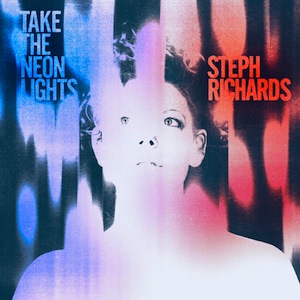Label: WhyPlayJazz, 2019
Personnel - Gebhard Ullmann: tenor saxophone, clarinet; Steve Swell: trombone; Julian Arguelles: baritone saxophone; Pascal Niggenkemper: bass; Gerald Cleaver: drums.
The avant-jazz forays engineered by German saxophonist/clarinetist Gebhard Ullmann are, per usual, excitingly strenuous and worth to dive into. The most recent release of his esteemed project Basement Research, now celebrating its 25th anniversary, is called Impromptus and Other Short Works, featuring Ullmann on tenor saxophone and bass clarinet alongside a quartet of compatible accomplices: trombonist Steve Swell, baritonist Julian Arguelles, bassist Pascal Niggenkemper, and drummer Gerald Cleaver.
Despite its title, “Gospel” is not an effusively happy tune of faith and devotion, rather feeling like a deep-rooted band march. Melodically conducted by trombone, the tune has the taciturn tones of the baritone sax bestowing extra consistency. Its calm intensity, illustrated by amiable folk touches in a Frisell kind of way, is transferred to “Kleine Figuren”, where the horn players, by turns, deliver their statements over an unremitting harmonic progression.
“29 Shoes” makes us dance at the sound of its swinging short theme, suggesting a free-bop ride in the vicinity of “Fascinating Rhythm”. The pulsations rise and shine, combust, and then cool down, ending up in collective cacophonies while relying on both Cleaver’s lucid rhythmic maneuvers and Niggenkemper’s pedals to create tension.
The hook-filled “Almost Twenty-Eight” is an avant-garde delight with a virtuosic integration of written and improvised parts. Feel the power that comes from the burning solos and discover the adaptability of a rhythm section that knows exactly which moves to make for the sake of dynamics.
Six extemporary pieces get to showcase the musicians’ limber technique and spontaneous creativity. Both “Twelve Tones - Impromptu #5” and “Lines - Impromptu #2” display melodic ideas occasionally delivered in unison. They are quickly scattered in other directions or dissolved in calmer passages. In the case of the former piece, awesomely introduced by alto sax and trombone, we have the growling baritone infecting the scene after a few carefree interventions by the collective. In turn, the latter composition brims with expressive, groovy lines and colorful drumming patterns that take the form of simple cymbal scratches and rattles on the final section. Bowed bass vibratos also contribute, giving some support to Swell’s trombone manifesto.
The ceremonial “Impromptu #1” shows a predilection for deep notes, yet Ullmann’s eloquent tenor sax infuses some Eastern-flavored half steps over the modal changes, giving it the aspect of a spiritual song. “Sticks - Impromptu #4” directs the spotlight to Cleaver, who dilates his chops behind the drum kit with confidence, whereas “For Jim - Impromptu #6” starts as a rubato lament, but evolves into a waltz freshened up by a nice percussive flow with Latin traces.
This is a successful, enjoyable effort from a band that, knowing exactly where they want to go, has the intuition plus technical means to create winning music every step of the way.
Garde A-
Favorite Tracks:
02 - Twelve Tones - Impromptu #5 ► 03 - Impromptu #1 ► 11- Almost Twenty-Eight








































